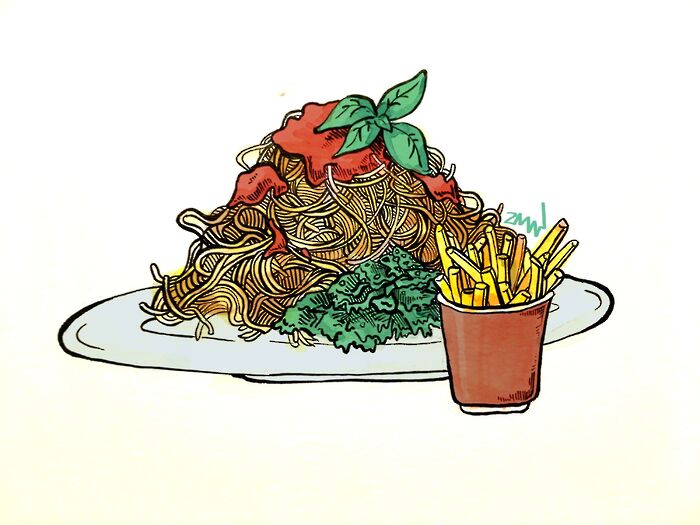The breast cancer gene and me
Looking ahead to Pink Week, Charlie Morgan discusses her recent discovery that she has a higher risk of breast cancer and what it means for her health

‘If I had to choose one friend for this to happen to, it would’ve been you. You’ll get through this, you’ll be fine, you’ll be fine…’
This was my best friend’s mantra, as we sat on the freezing patio of a party in the middle of February last year. I was crying, wrapped in his arms, and I’d never felt so small in my life. A week earlier, a clinical geneticist had told me that I was a carrier of the BRCA2 genetic mutation.
Everyone has the BRCA1 and BRCA2 genes. They help to fight off a certain group of cancers, primarily breast cancer – after which they are named – and ovarian, prostate, melanoma and pancreatic cancers. But with a faulty gene, the risk of developing these cancers skyrockets. For breast cancer, my lifetime risk had grown from 12 to 69 percent overnight. For ovarian cancer, almost impossible to screen, my risk had grown from 1.3 to 17 percent. The news completely shook my world and was utterly terrifying – it was like nothing I’d ever experienced. A year later, I still find it hard to put into words how I feel.
My friend squeezed tighter when he realised what he’d just said. Saying that he would have chosen me wasn’t cruel – or so he thought – but supportive. He knows I’m strong: I’m the advice giver rather than taker. I know what I want, and I go for it. He knew I could take this thing head on and would do whatever I could, whatever that meant, to fight it. But I didn’t believe him. How could I fight against my own genetic code? A positive result for the BRCA2 mutation has ripples throughout your life, and when I was 20 and didn’t (and still don’t) even know what to be when I grow up, the diagnosis was overwhelming. My life stretched out in front of me, all at once, and irrevocably.
As a self-diagnosed optimist, I needed to put the news into perspective. Knowing about the genetic mutation is an incredible gift, and it has probably saved my life. And, I found out about the gene by chance: as Ashkenazi Jews, my parents had been invited to participate in a national study and were both tested for the mutation eight years ago. Unlike the general population who have a 1-in-500 chance of carrying the mutation, in Ashkenazi Jews the risk rises to 1-in-40. Usually the gene can clearly be traced through a family's medical history like a bitter and unwelcome guest. Yet, despite no known history of breast cancer in his family, my dad tested positive.
When a parent carries the genetic mutation, there is a fifty percent chance of passing it on to each of their children. I decided to get tested, and the blood test was easy – but the waiting impossible. After four weeks, by some extraordinary coincidence, I was called by the geneticist while on my way home from Cambridge. I learned two things that day: that a little (or big) cry on public transport is totally liberating, and that my result was positive. On the train I phoned my mum, a doctor who has perfected the art of handling bad news, and her response was characteristically cool: ‘shit, shit, shit, shit, shit’.
After a positive diagnosis for the BRCA2 mutation, your geneticist will give you three options. First, you can do nothing, and hope that you’re in the lucky minority. Second, you can choose non-invasive options, and combine annual anxiety-inducing screening with chemopreventative drugs (with scary side-effects) that do not guarantee risk-reduction for those with BRCA mutations. Or third, you can have a bilateral prophylactic mastectomy. This risk-reduction surgery can (almost) cure a lifetime of worrying! I knew immediately what I wanted to do, and that summer made my first appointment with the breast surgeon.
In July 2019, after finishing my master's, I will have a double mastectomy. During the five-to-eight-hour surgery, two surgeons will replace my dangerous breast tissue with implants and will reduce my risk of breast cancer by at least 95%. The surgery is complex, and although it’s often confused with cosmetic breast augmentation, it’s far more about risk than the risqué. To look on the bright side, that’s not so say there aren’t perks in little extra perk. But this will be my first surgery and overnight stay in hospital – even my debut in a hospital gown! The minimum six-week recovery period, aftercare rituals, plus the list of side effects, are terrifying. Despite all this, I know I’ve made the right choice.
This won’t be the end of my fight with the BRCA2 mutation. There are more surgeries and risks to manage later in my life, but I don’t want to wait to share my story. By chance, I was involved with Pink Week for two years before receiving my diagnosis, and I’ve seen the amazing work it does to raise money and awareness. This Pink Week learn how to check yourself for breast cancer, and do it monthly. If you think your family might carry the BRCA gene, talk to your GP. There are lots of steps you can take to arm yourself against breast cancer. My fight, for now, is a quest for the perfect post-mastectomy front-fastening heat-moulded booby-loving bra.
Charlie will be speaking at the Pink Week event 'BRCA Education Evening' on Saturday 9th February, 7-8.30pm. The event is free, warmly open to all, and will be held in the Emmanuel College Old Library.
Statistics and more information can be found at https://www.cancer.gov/about-cancer/causes-prevention/genetics/brca-fact-sheet.
 News / SU reluctantly registers controversial women’s soc18 December 2025
News / SU reluctantly registers controversial women’s soc18 December 2025 Features / Should I stay or should I go? Cambridge students and alumni reflect on how their memories stay with them15 December 2025
Features / Should I stay or should I go? Cambridge students and alumni reflect on how their memories stay with them15 December 2025 News / Dons warn PM about Vet School closure16 December 2025
News / Dons warn PM about Vet School closure16 December 2025 News / Cambridge study finds students learn better with notes than AI13 December 2025
News / Cambridge study finds students learn better with notes than AI13 December 2025 News / CUP announces funding scheme for under-represented academics19 December 2025
News / CUP announces funding scheme for under-represented academics19 December 2025









